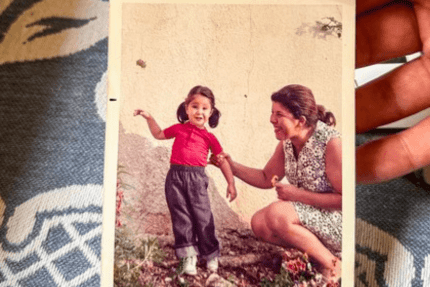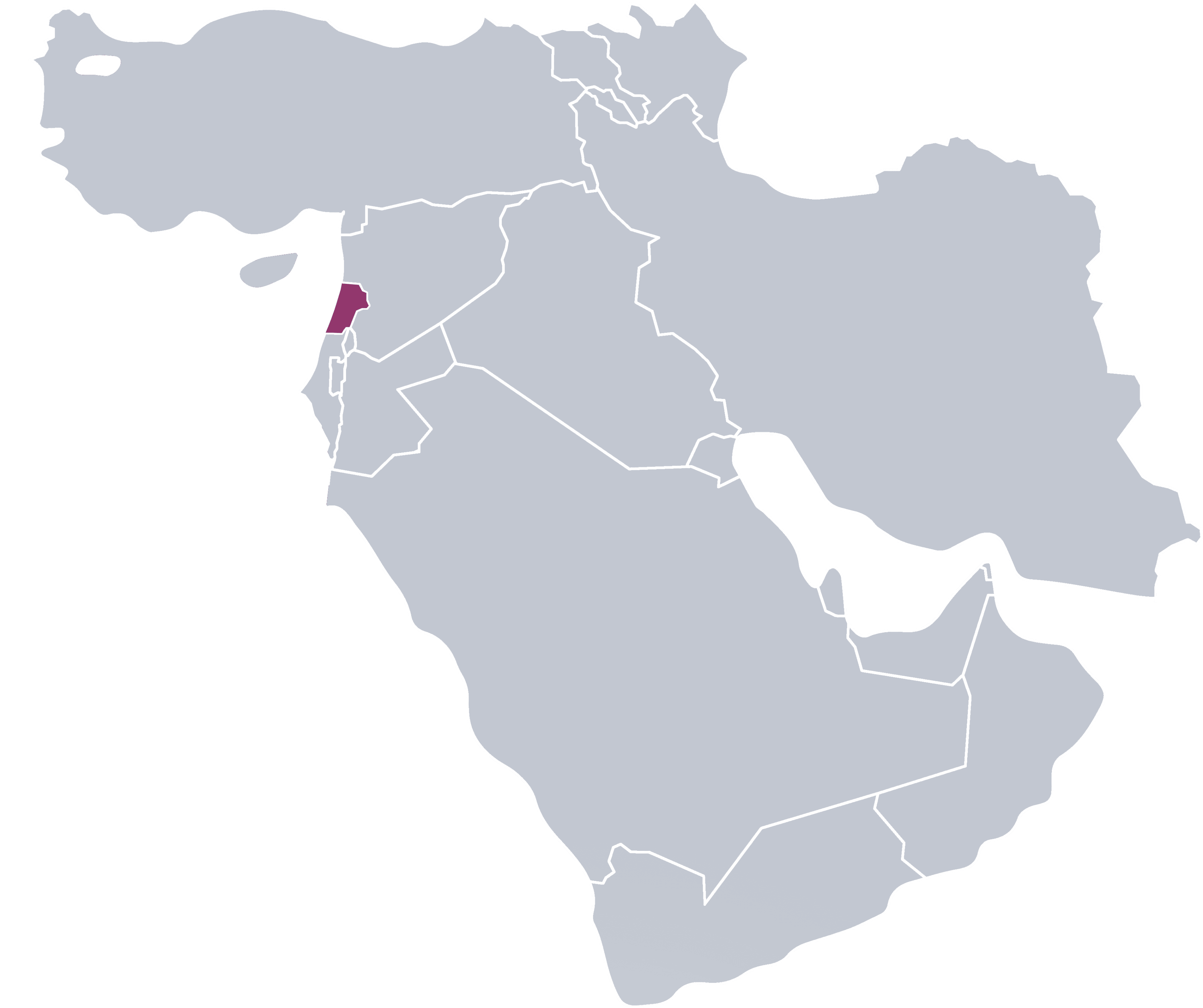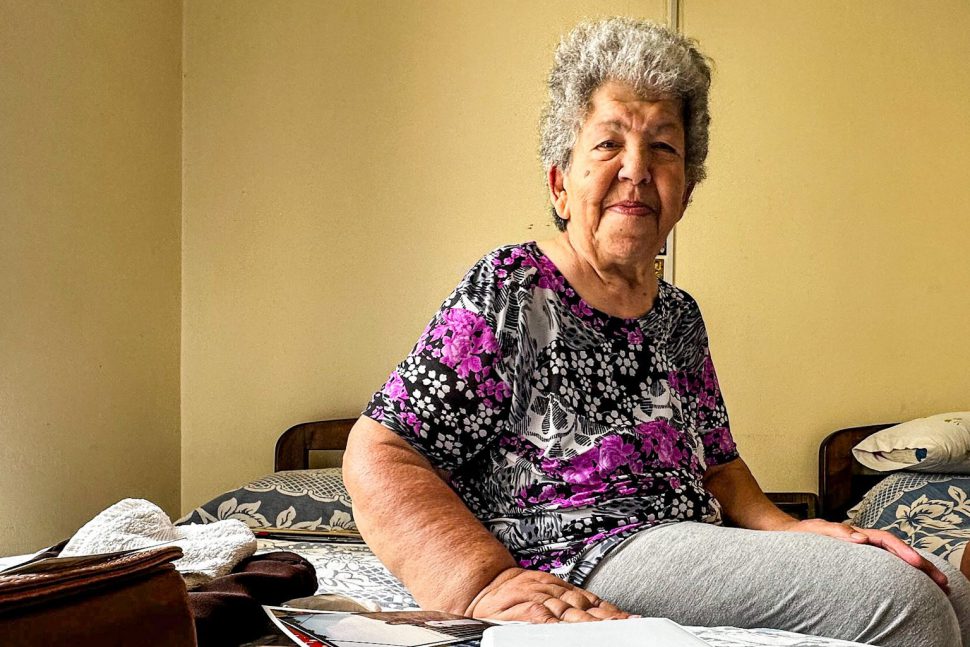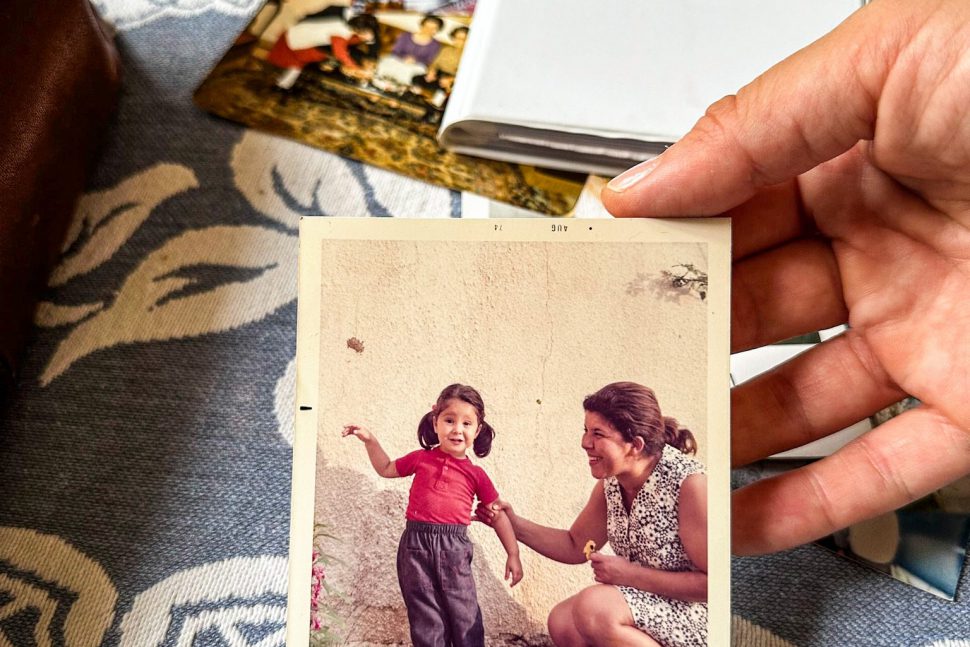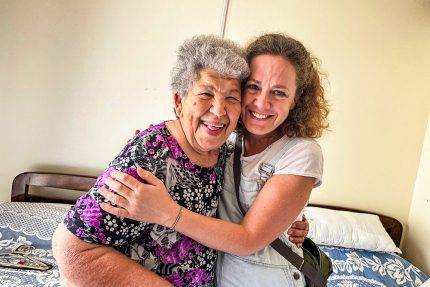“No one visits me. Fuel is expensive. They probably have no way to come,” explains the 80-year-old. She very much wants to believe that this is the only reason. She hesitates for a moment. Finally, she shakes her head and pushes away unwanted thoughts. She smiles again.
Laudie holds a shoebox in her hand. When we introduce ourselves, she cradles it and caresses it. She has been living with nuns in the suburb of Byblos for three years. The old lady’s round, plain face, her eyes betraying how much she can enjoy the little things. She never stops smiling, even though she doesn’t have many reasons to be happy anymore.
“Come on! I have to show you something.”
Laudie opens the box and looks through photos from the past. She spreads out paper memories on the bed. For decades she raised the children of rich Lebanese. She devoted herself completely to them. She ran out of time to create her own home and start a family.
A double mastectomy, a circulation problem, no job, savings frozen in the bank for good, no income and loneliness. Any one of these tragedies can kill. Laudie carries them all.
“I am not alone. There are the sisters, there is Dr Elias, there are you. You give me my medication. Thanks to you I have something to eat. I still have something to thank God for.”
The crisis in Lebanon has turned everything upside down. The World Bank declared in 2021 what is happening here as the biggest economic collapse in modern history. However, nothing has come of it. Everything is still lacking. It is up to us to make sure there is no shortage of good hearts here. Laudie and our other wards in Lebanon need you
